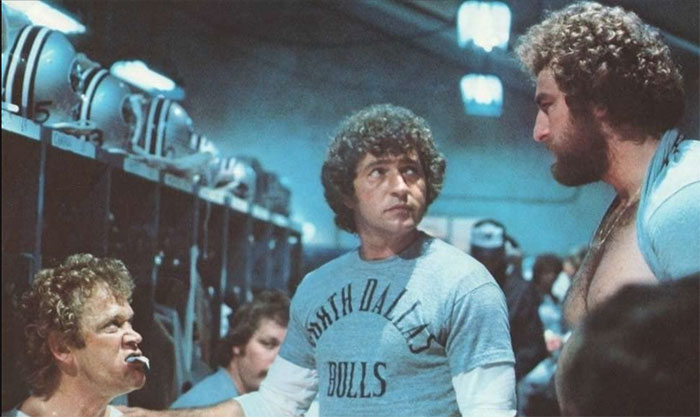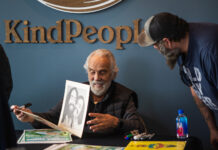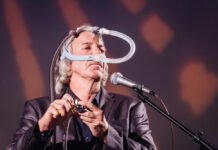North Dallas Forty, released 43 years ago this month, is usually described as a “sports movie,” or as a searing indictment of the hypocrisy and greed that pervade professional football and pro sports in general. It certainly is both of those things, but it could just as easily be described as the best drug movie ever made.
Or, more accurately, it could be called the best anti-drug movie ever made, if we think of “drugs” as something very different from “cannabis,” as we should. No film before or since has more plainly or jarringly highlighted the differences between weed and narcotics, and the perverse ways we apprehend and deal with both.
It’s also a helluva good sports movie. But, as critic Roger Ebert noted at the time of its release, the lead character, aging football star Phil Elliott, played by Nick Nolte at his grumpy best, “could just as easily have been an insurance adjuster,” since the movie is really more about the compromises we are all forced to make to survive in a cutthroat economy where principles are often cited, but rarely followed.
It’s certainly not a traditional sports movie (Please note: Spoilers for this decades-old movie follow). There are training montages, but they are more grim than inspiring. There’s a “big game” at the end on which everything depends, but it doesn’t go the way it normally does in a sports movie. It might even be called an anti-sports movie, if by “sports” we mean big-money, professional league sports, which by 1979 were already riven with corruption, crassness and amorality—with much worse to come.
Throughout the film, people use substances of various kinds, often to self-medicate. There is near-constant drinking. The players pop uppers and pain pills. Elliott and many of his teammates smoke cigarettes and cigars, even in the locker room and while working out. Even the coach is constantly gulping on a bottle of Maalox.
They also smoke tons of weed, and for most of the movie it’s treated as unremarkable, which is highly unusual for a movie of that era. But the cannabis use becomes very important during the movie’s climax.
Perhaps no film has better exposed the gross hypocrisies that still underlie our whole approach to determining which substances are “good” and which are “bad.” Elliott, in the twilight of his career as a wide receiver for the North Dallas Bulls as he approaches age 40, has “the best hands in football.” But his body is broken from years of abuse on the field. Sometimes, in order to play, he must consume some hard narcotics. But these hard drugs—Lidocaine in particular—are officially sanctioned and administered by the team. “Better football through chemistry,” Elliott wisecracks.
Weed, meanwhile, violates not only the law, but the “morals clause” that players are held to. That’s what ends up destroying Elliott’s career. “You gave me harder stuff in Chicago just to get me out of the goddamned locker room,” Elliott protests when confronted by the team owners. The movie explicitly exposes the grave harms these heavy drugs do, and addiction isn’t even one of them: It’s not mentioned at all.
The pot is just an excuse: The soulless owners want to get rid of the fading star because his contract is pricey. So they investigate him and discover that, about a week before they shot his knee full of Lidocaine, he had smoked a joint. Using weed as an excuse to fuck with people has a long history: the whole reason it was made illegal in the first place was so that the cops had something convenient to pin on Black and Brown folks. That’s still happening today.
North Dallas Forty sits alongside Modern Times, Network and Office Space as one of filmdom’s most devastating accounts of the emptiness of American-style capitalism, the history of which is tightly bound to the history of pot prohibition. The rules make no sense and are arbitrarily applied. Nobody, other than the people in power, knows which end is up. “Every time I call it a game, you call it a business,” one player screams at the coach. “And every time I call it a business, you call it a game.”
Originally posted by EastBayExpress.com








